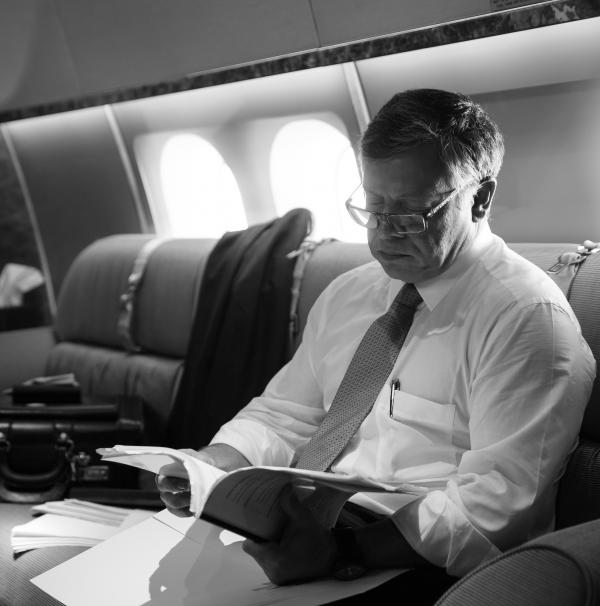Remarks by His Majesty King Abdullah II At the 2005 UN World Summit

In the Name of God, the Most Merciful, the Compassionate,
Your Excellencies,
Five years ago, the world's leaders met here to declare a new vision for a new age. The Millennium Summit was a response to a global moral consensus: our world can no longer deny the basics of life and peace to billions of people. Five years later, it is clear that we acted not a moment too soon. Humanity has seen the dangers of a global system that excludes people – especially youth – from opportunity and hope. Now, the people of the world are looking to us: to bring our nations together, to act with urgency and to achieve results.
I am honoured to report that Jordan is on track to achieve the majority of its Millennium Development targets. The challenges are real and there is much to be done. But gains are being made in poverty reduction, health, education, gender equality, the environment and more. This effort is only part of Jordan's much larger national strategy – a comprehensive, inclusive approach to reform and development.
Yet, we do not act in a vacuum. Our country, our region and the world, are all affected by the prospects for peace. One critical step is to ensure zero tolerance towards those who promote extremism. Jordan has worked with the international Muslim community to oppose extremist interpretations of Islam. Jordan wants true, moderate, traditional Islam to replace fundamentalist, radical and militant Islam, everywhere in the world, for every single Muslim.
In November of 2004 we issued the Amman Message, which sought to clarify the true nature of Islam – what it is and what it is not. Then, last July, over 180 scholars met in Amman. They represented 45 countries and were supported by fatwas from 17 of the world's greatest Islamic scholars. Together, they achieved, for the first time in history, a unanimous consensus on a number of critical issues.
First, the declaration recognised the legitimacy and common principles of all eight of the traditional schools of Islamic religious law. Second, it defined the necessary qualifications and conditions for issuing fatwas. This exposes the illegitimacy of the extremist fatwas justifying terrorism, which contravene the traditional schools of Islamic religious law and are in clear violation of Islam's core principles. Third, the declaration condemned the practice known as “takfir” (calling others apostates) – a practice that is used by extremists to justify violence against those who do not agree with them.
Even as we work for peace, development must go forward. Important in this effort is millennium goal seven: international partnership.When developed nations commit to active, increased development support, they advance global progress for all. The world knows what is needed: fair trade, increased direct assistance and debt relief. The recent G-8 agreement on debt relief for the poorest nations was a positive step. The European Union has put forward a calendar on increased assistance. We need to continue and expand such efforts.
This is particularly important with regard to the key group of lower-middle and middle-income countries. Our countries have a major role in regional and global stability. Many of us have been forging ahead full steam with reforms, and are on the verge of reaching higher income levels. That success can translate into real development gains only if it is nourished and sustained. A group of determined leaders, mostly from middle-income countries, are discussing shared concerns – free and fair trade, targeted aid and more. We have agreed to continue our discussions on ways to reach accord with the developed nations.
This World Summit recognises that our globe is one of shared dependence – and shared opportunity. We have a strategic and also a moral mission. It is now in our hands to prove to the world's people, especially our youth, that our international institutions work – and that global justice is real.
Thank you very much.


